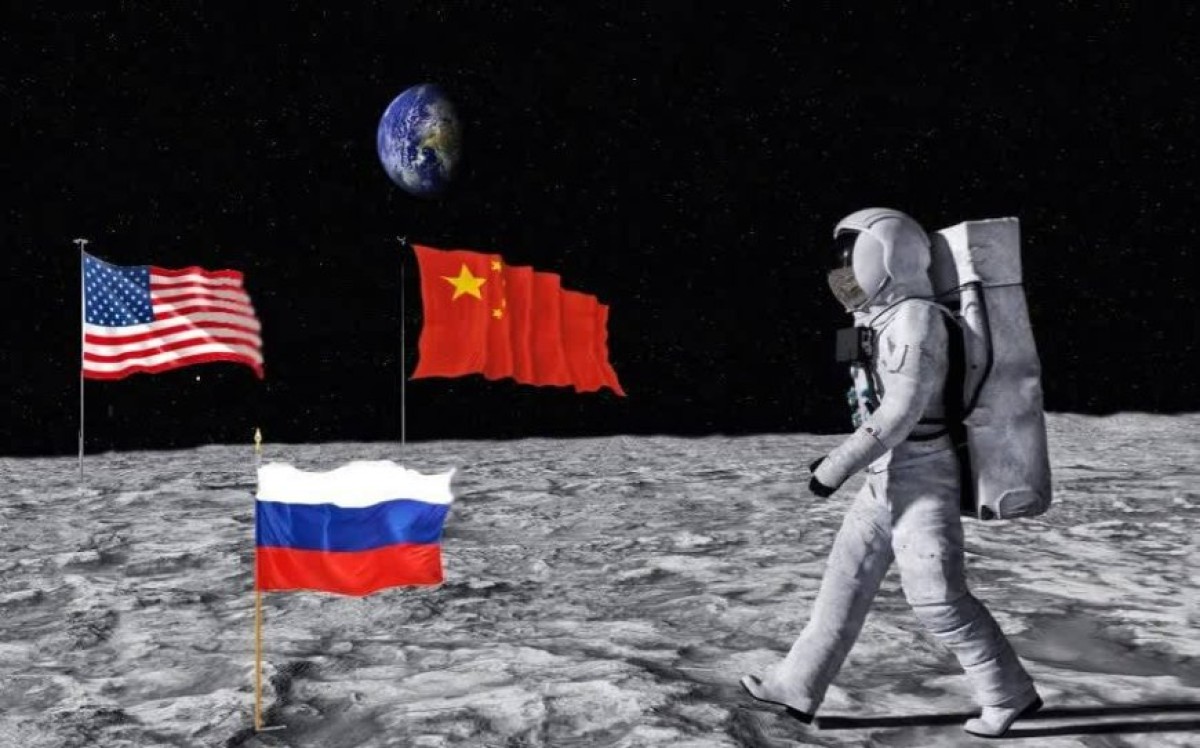 436
436
Star Wars: The Great Powers' Race to the Moon
Star Wars: The Great Powers' Race to the Moon
In an era marked by escalating geopolitical tensions, the once tranquil expanse of outer space has transformed into a battleground for rival powers vying for supremacy. The race to harness the untapped potential wealth of the moon has ignited a fervent competition between the United States and its allies on one side, and China and Russia on the other, heralding a new chapter in the annals of space exploration with far-reaching implications.
By: A. Mahdavi
The escalating significance of space and its attendant technologies is palpable as nations endeavor to secure a strategic foothold in this celestial arena. Decades ago, President Reagan articulated the United States' ambitious pursuit of space dominance, invoking visions of extraterrestrial threats and lunar conquest that captivated the global imagination. Today, the discourse surrounding space has evolved into a pivotal narrative among nations, particularly major powers, underscoring the imperative of terrestrial unity in celestial realms. Mastery of space, particularly the moon, confers not only strategic advantages but also augments diplomatic leverage in future interplays.
The genesis of this contemporary space rivalry can be traced to accusations leveled by the United States against Russia and China for allegedly militarizing space. The specter of a Russian space incursion has prompted the American government to bolster its defense capabilities, underscoring a perceived vulnerability that demands rectification. In a bid to fortify their defenses, the US Department of Defense clandestinely dispatched a classified payload into space, shrouded in secrecy and speculation.
Simultaneously, China has embarked on a trajectory of technological ascendancy in space, mirroring the strategic rationale espoused by the United States. While Beijing avows a commitment to peaceful endeavors in space, the discord between superpowers has deepened, particularly in the realm of space technologies. Russia, in rebutting US allegations, advocates for restraint and cooperation, emphasizing the shared costs of discord. Collaborative ventures with China, including purported plans for a lunar nuclear base, underscore Moscow's strategic recalibration in the cosmic chessboard.
The lunar landscape, replete with trillions of dollars' worth of metals and minerals, beckons as a coveted domain for nations aspiring to stake their claim as pioneers of extraterrestrial conquest. The race to secure primacy in lunar exploration is underscored by the strategic significance of being the first to exploit these abundant resources, propelling a multitude of countries and private enterprises towards launching lunar missions in the forthcoming decade.
Nations that succeed in harnessing lunar resources stand to wield unparalleled influence in shaping future markets and governance mechanisms on the moon. "Technology will be the key to this space race," asserts Namrata Goswami, a distinguished space policy expert and professor at Arizona State University, underscoring the pivotal role of technological innovation in determining the victors of this cosmic contest.
The allure of economic prosperity through satellite ventures has engendered a global realignment, as nations align themselves with either the United States or China in pursuit of their respective visions for space exploration and resource exploitation. This extraterrestrial cold war, if left unchecked, harbors the ominous specter of escalating into a full-fledged conflict in space, transcending the realm of speculative fiction into a tangible global crisis.
The unfolding narrative of the space race portends a strategic battle for supremacy that resonates with echoes of the Cold War era, imbuing the celestial frontier with geopolitical significance unparalleled in recent history. As the stakes escalate and the contours of this cosmic competition crystallize, the imperative for diplomatic dialogue and multilateral cooperation becomes ever more pressing to avert a descent into the abyss of interstellar conflict.
 436
436
Comment
Post a comment for this article